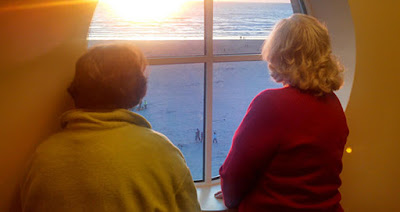How is it that one man’s dream is another’s worst nightmare? This seems to be the norm when it comes to our older generation who want to spend their golden years in the home they worked so hard to have. Unfortunately, their dream can quickly turn into a nightmare for their children who are tasked to take care of them as they get older.
Seniors wanting to live independently are occasionally inflexible and obstinate.
It’s understandable wanting to live at home, but sometimes it isn’t the most practical decision. Even though there are many different alternatives to retirement centers, the belief that there is no place like home holds true for most. Seniors who wish to remain in their homes until their last days, must be able to take care of themselves for the most part. The reality is that more often than not, this isn’t the case. This raises the question, "Who will be their caregiver?"
It’s understandable wanting to live at home, but sometimes it isn’t the most practical decision. Even though there are many different alternatives to retirement centers, the belief that there is no place like home holds true for most. Seniors who wish to remain in their homes until their last days, must be able to take care of themselves for the most part. The reality is that more often than not, this isn’t the case. This raises the question, "Who will be their caregiver?"
Being your parent’s caregiver is a full-time job. Adult children often feel obligated to do so, and most of the time, the sole responsibility falls directly onto one person’s shoulders. Before you take on this massive responsibility, there are a few questions you should ask yourself before you make a final decision.
What are the sacrifices I will need to make to able to take care of my parents?
- Will I be able to give my own family enough quality time?
- From a financial aspect, is it affordable?
- How understanding is my employer about the situation?
- Is my job in jeopardy due taking time off from work to care for my parents?
- Will I lose possibility for advancement at work?
- Do I fully understand what is involved?
- Am I able to provide a satisfactory level of care in comparison to a trained professional?
- How will my spouse and children feel about my absence?
- Is it possible to have time for myself without feeling guilty?
Keep in mind that your decision will not only impact you, but your own family as well. If you think you are unable to be your parents caregiver, don't feel ashamed.
The dedicated staff at Visiting Angels in Las Vegas understand. We know how much you love your parents, but we also understand that you have other obligations that demand your attention. Call us today to talk about the possible options. Together we can find a solution that makes everyone smile.
The dedicated staff at Visiting Angels in Las Vegas understand. We know how much you love your parents, but we also understand that you have other obligations that demand your attention. Call us today to talk about the possible options. Together we can find a solution that makes everyone smile.






